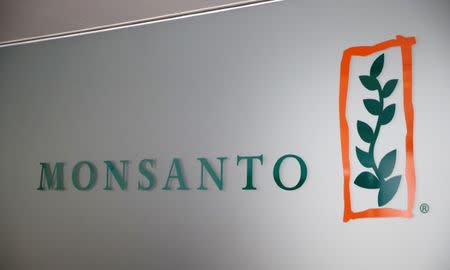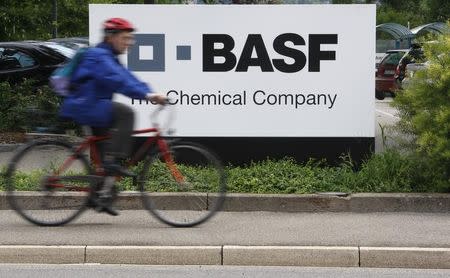Arkansas one step from ban on controversial herbicide next summer
By Tom Polansek CHICAGO (Reuters) - Arkansas on Thursday moved just one step away from barring sprayings next summer of an herbicide linked to widespread U.S. crop damage, setting the stage for a potential legal showdown between the state and chemical maker Monsanto Co. The Arkansas State Plant Board advanced a proposal prohibiting use of dicamba weed killers from April 16 to Oct. 31, 2018, after farmers reported that soybeans and other crops were damaged when the herbicide drifted away from where it was sprayed this summer. Chemical companies have blamed damage to crops that cannot tolerate dicamba on farmers misusing the chemical. Specialists, though, have said the weed killers are risky because they can vaporize and drift across fields after they are sprayed on dicamba-resistant soybeans or cotton developed by Monsanto. That process, known as volatility, occurs more often in high temperatures, according to experts. In July, Arkansas banned dicamba use for 120 days. Ty Vaughn, Monsanto's vice president of global regulatory, said volatility is not a problem and that science did not support the plant board's decision. "All options are on the table" for Monsanto's next move, he added. Monsanto previously submitted a petition asking the board to reject the proposed cutoff date for sprayings and warned the company may file a lawsuit if the board denied the request. If implemented, the deadline could hurt sales of dicamba herbicides and Monsanto seeds resistant to the chemical. The board unanimously denied Monsanto's petition and will work with legal staff to prepare a response, according to a statement. BASF and DuPont also sell dicamba herbicides under different brand names. BASF had no immediate comment and a DuPont representative could not immediately be reached. The proposed deadline will next head to an Arkansas legislative subcommittee for final approval, after a public comment period and public hearing on Nov. 8. The U.S. Environmental Protection Agency is also reviewing rules for dicamba use, but wants to ensure the herbicides are available to farmers next year, an official said on Tuesday. Monsanto's Vaughn said that for 2018 the company needs to change some instructions on its dicamba herbicide, XtendiMax with VaporGrip, to make them "much more clear within the label." He said the company found vulnerable crops suffered damage this summer when farmers did not follow instructions to halt sprayings when the wind is blowing at certain speeds and other usage guidelines. "There are parts of the label that we need to amplify," Vaughn said. (Reporting by Tom Polansek; Editing by Diane Craft and Richard Pullin)


